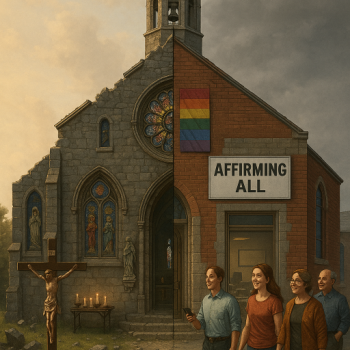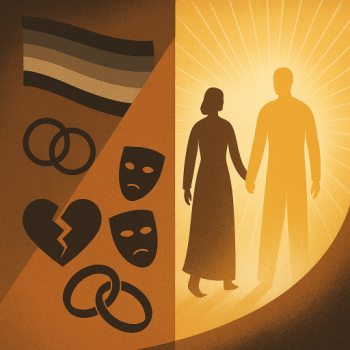Today begins the First Session of the Synod of Synodality (SoS) in Rome. The SoS represents a significant moment in modern Church history. While a mere consultive and not a magisterial organ, Pope Francis may implement some recommendations from the SoS. If so, this will impact all Catholics throughout the world. In anticipation of this, or in an attempt to influence the SoS, this week five cardinals released their five dubias (doubts) addressed to Pope Francis in July, Pope Francis’ response, and their follow-up dubias in response to his answers. What a week thus far!
Now, other Catholic commentators have come forward to express their opinions on the dubias, like Michael Lofton at Reason and Theology. I recommend watching Mr. Lofton’s video on the dubias. He does a great job and provides a balanced take. I do not fully agree with him on all his points, but overall, he provides a fair analysis.
For this article, I want to focus on the response by some within and without the Church concerning Pope Francis’ response to the dubia (number 2) concern blessing same-sex relationships as a sign of a coming sea change in the Church. In a past article, I predicted some sort of compromise. The response from Pope Francis appears to support this prediction.
For clarity and transparency, I will cite the sources extensively, so please forgive the long quotations.
The Dubia on Blessing Same Sex Couples
Dubia 2 issued on July 10th, 2023. It reads:
2 Dubium about the claim that the widespread practice of the blessing of same-sex unions would be in accord with Revelation and the Magisterium (CCC 2357).
According to Divine Revelation, confirmed in Sacred Scripture, which the Church “at the divine command with the help of the Holy Spirit, … listens to devotedly, guards it with dedication and expounds it faithfully ” (Dei Verbum 10): “In the beginning” God created man in his own image, male and female he created them and blessed them, that they might be fruitful (cf. Gen. 1, 27-28), whereby the Apostle Paul teaches that to deny sexual difference is the consequence of the denial of the Creator (Rom 1, 24-32). It is asked: Can the Church derogate from this “principle,” considering it, contrary to what Veritatis Splendor 103 taught, as a mere ideal, and accepting as a “possible good” objectively sinful situations, such as same-sex unions, without betraying revealed doctrine?
Pope Francis’ Response
In response, Pope Francis offered the below answers to dubia 2:
a) The Church has a very clear conception of marriage: an exclusive, stable, and indissoluble union between a man and a woman, naturally open to the begetting of children. It calls this union “marriage.” Other forms of union only realize it “in a partial and analogous way” (Amoris Laetitia, 292), and so they cannot be strictly called “marriage.”
b) It is not a mere question of names, but the reality that we call marriage has a unique essential constitution that demands an exclusive name, not applicable to other realities. It is undoubtedly much more than a mere “ideal.“
c) For this reason, the Church avoids any kind of rite or sacramental that could contradict this conviction and give the impression that something that is not marriage is recognized as marriage.
d) In dealing with people, however, we must not lose the pastoral charity that must permeate all our decisions and attitudes. The defense of objective truth is not the only expression of this charity, which is also made up of kindness, patience, understanding, tenderness, and encouragement. Therefore, we cannot become judges who only deny, reject, exclude.
e) For this reason, pastoral prudence must adequately discern whether there are forms of blessing, requested by one or more persons, that do not transmit a mistaken conception of marriage. For when a blessing is requested, one is expressing a request for help from God, a plea for a better life, a trust in a Father who can help us to live better.
f) On the other hand, although there are situations that from an objective point of view are not morally acceptable, pastoral charity itself demands that we do not simply treat as “sinners“ other people whose guilt or responsibility may be due to their own fault or responsibility attenuated by various factors that influence subjective imputability (cf. St. John Paul II, Reconciliatio et Paenitentia, 17).
g) Decisions which, in certain circumstances, can form part of pastoral prudence, should not necessarily become a norm. That is to say, it is not appropriate for a diocese, an episcopal conference or any other ecclesial structure to constantly and officially authorize procedures or rites for all kinds of matters, since everything “what is part of a practical discernment in particular circumstances cannot be elevated to the level of a rule,“ because this “would lead to an intolerable casuistry“ (Amoris Laetitia, 304). Canon law should not and cannot cover everything, nor should the episcopal conferences claim to do so with their various documents and protocols, because the life of the Church runs through many channels in addition to the normative ones.
The Second 2nd Dubia…
Moreover, in response to Pope Francis’ response, the cardinals requested more clarification in the form of a “yes” or “no” answer to the below:
2 Your Holiness has insisted on the fact that there can be no confusion between marriage and other types of unions of a sexual nature and that, therefore, any rite or sacramental blessing of same-sex couples, which would give rise to such confusion, should be avoided. Our concern, however, is a different one: we are concerned that the blessing of same-sex couples might create confusion in any case, not only in that it might make them seem analogous to marriage, but also in that homosexual acts would be presented practically as a good, or at least as the possible good that God asks of people in their journey toward Him. So let us rephrase our dubium: Is it possible that in some circumstances a pastor could bless unions between homosexual persons, thus suggesting that homosexual behavior as such would not be contrary to God’s law and the person’s journey toward God? Linked to this dubium is the need to raise another: does the teaching upheld by the universal ordinary magisterium, that every sexual act outside of marriage, and in particular homosexual acts, constitutes an objectively grave sin against God’s law, regardless of the circumstances in which it takes place and the intention with which it is carried out, continue to be valid?
As stated before, the above exchanges are shared in their entirety to avoid confusion or accusations of cherry-picking.
The Crux of the Matter
The crux of the matter, and why the cardinals resubmitted a follow-up dubia, concerns apparent caveats found in paragraphs (d), (e), (f) and (g). In employing loaded phrases like “pastoral charity” in paragraphs (d) and (f) and “pastoral prudence” in paragraph (e) and (g), Pope Francis seems to allow for “pastoral” discretion in the application of blessing same-sex couples. Therefore, while the Church cannot officially bless same-sex couples, the Pope leaves it up to individual priests to discern whether or not to bless them on a case-by-case basis. The cardinals were correct to reissue a follow up dubia.
The Concern Hold Merit
The cardinals’ chief concern, and why they reissued their second dubia, appears to hold merit considering the responses from mainstream media outlets and pro-LGBTQ Catholic groups. Their main concern:
…that the blessing of same-sex couples might create confusion in any case, not only in that it might make them seem analogous to marriage, but also in that homosexual acts would be presented practically as a good, or at least as the possible good that God asks of people in their journey toward Him. [emphasis added]
Again, their concern is the apparent caveat that allows for “pastoral” discretion because there exists no case in which the Church blesses sin, none.
Media Reaction
However, due to the apparent confusion Pope Francis started, the media thinks otherwise. NBC News reports: Pope Francis signals openness to blessings for same-sex couples. The opening two paragraphs of the report states:
Pope Francis opened the door Monday for some Catholic priests to bless same-sex unions, hinting at a reversal of the official Vatican position that has put it at odds with many of its own progressive followers.
However, Francis outlined some major caveats, including that they should be decided on a case-by-case basis and not seen as equivalent to heterosexual wedding ceremonies.
A signal indeed! Now, NBC News may have read more into the Pope’s words than the Pope intended, but maybe not. Regardless, an answer to the second round of dubias appears needed to clear up any confusion, if indeed such confusion exists.
New Ways Ministry’s Reaction
Furthermore, Francis DeBarnardo, New Ways Ministry’s (NWM) executive director, issued a statement celebrating the Pope’s apparent “signal” to an openness to same-sex blessing on a case-by-case basis. In part, DeBarnadro states his understanding of the Pope’s words to mean:
This new step, outlined in a document released on October 2nd by the Vatican’s Dicastery for the Doctrine of the Faith, allows for pastoral ministers to administer such blessings on a case-by-case basis, advising that “pastoral prudence” and “pastoral charity” should guide any response to couples who request a blessing.
And more importantly:
The allowance for pastoral ministers to bless same-gender couples implies that the church does indeed recognize that holy love can exist between same-gender couples, and the love of these couples mirrors the love of God. Those recognitions, while not completely what LGBTQ+ Catholics would want, are an enormous advance towards fuller and more comprehensive equality. This statement is one big straw towards breaking the camel’s back of the marginalized treatment LGBTQ+ people experience in the Church.
Here, we see NWM executive director in full agreement with the reading the Pope Francis’ response by NBC News. And with the reporting of CNN, USA Today, and the BCC.
Final Thoughts…
In conclusion, as the Synod of Synodality starts in Rome, the Church need clearer answers. Fortunately, the five cardinals behind the two dubias possess the authority and knowledge to seek the clarification needed. The initial answers provided by Pope Francis seem to some to “signal” possible change. We the faithful need to know for sure.
Thank you!
Read The Latin Right’s other writing here.














